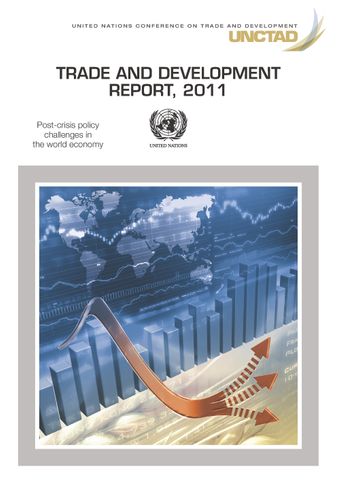The global monetary order and the international trading system

- Author: United Nations Conference on Trade and Development
- Main Title: Trade and Development Report 2011 , pp 157-190
- Publication Date: January 2012
- DOI: https://doi.org/10.18356/e5101d30-en
- Language: English
- Previous Chapter
- Table of Contents
- Next Chapter
One of the most intriguing discussions over the past few decades concerns competition among nations. There is a widespread notion that, with the accelerated pace of globalization, countries now have to compete in similar ways as companies. According to one view, the wealth of a nation depends on its ability to effectively adjust to the challenges created by open markets for goods and capital. Accordingly, it is believed that, as economies with low labour standards and inferior capital stocks are emerging as competitors, those with high welfare standards and sophisticated capital endowments are coming under increasing pressure to adjust to changing global market conditions. In particular, it argues that the emergence of a huge pool of idle labour in China, India and other large developing countries threatens to fundamentally reduce the capital/labour ratio for the world as a whole. This in turn would favour the remuneration of capital and have a strong equilibrating effect on labour in rich and poor countries alike, which could lead to a new global equilibrium somewhere in the middle of high and low wage extremes.
-
From This Site
/content/books/9789210548168c009dcterms_title,dcterms_subject,pub_keyword-contentType:Journal -contentType:Contributor -contentType:Concept -contentType:Institution105


